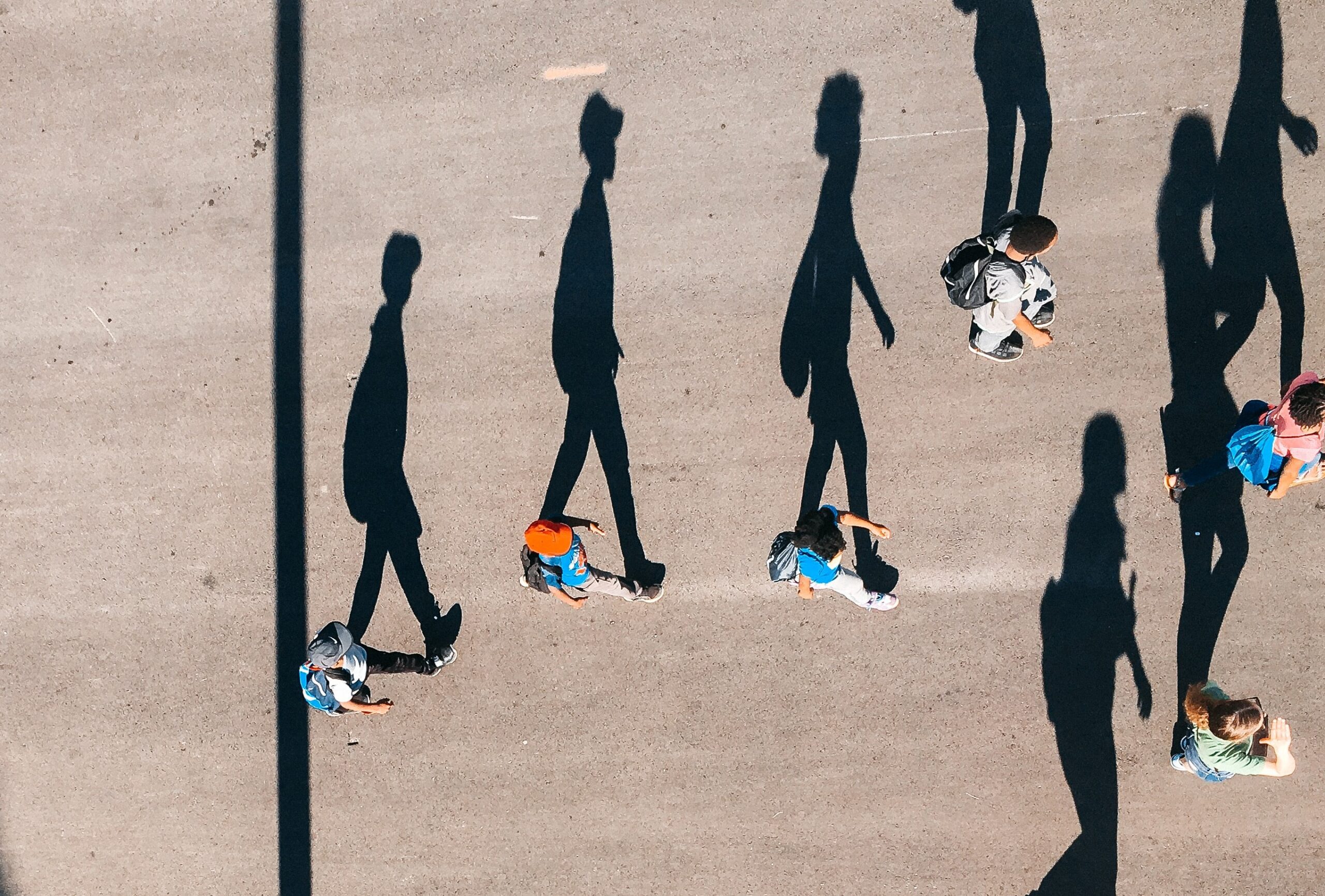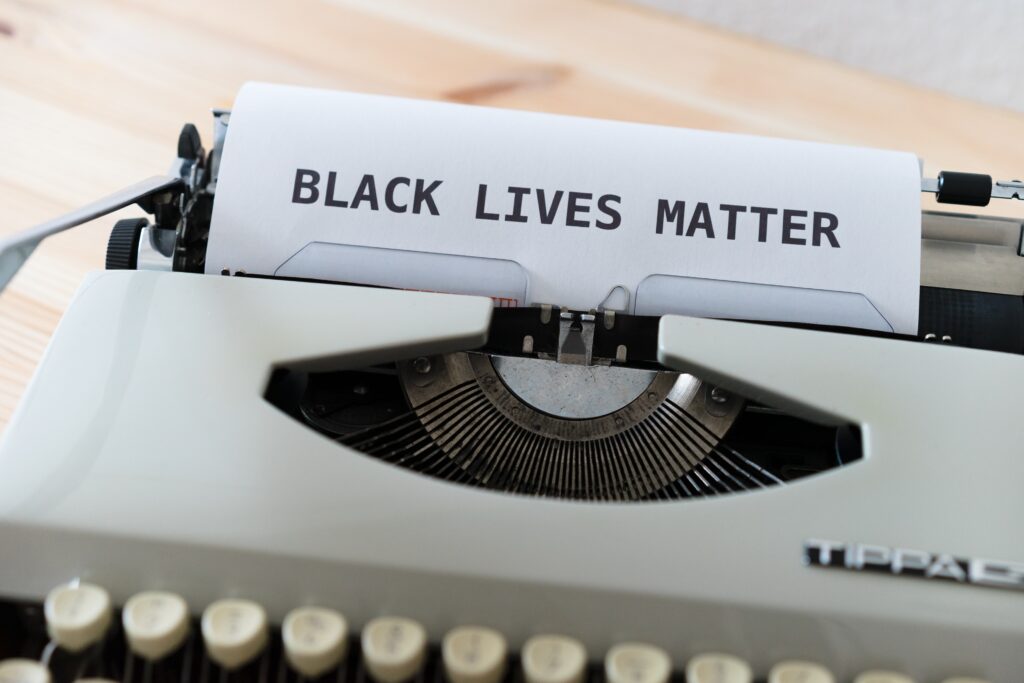
Love not hatred is the way to end racism

“There is only one race, the race of the children of God.” These words of a great Catholic saint of the 20th century, Josemaria Escriva, nicely capture how we at Adamah view the Black Lives Matter movement, writes Joseph Evans.
Racism is real. It exists in many forms and, as much as we might be horrified by it, if we are truly honest we might even find subtle forms of it in ourselves which we constantly have to resist. In my own country, Britain, as enlightened as it tries to be, it is obvious to me that black people still do not have the same opportunities and status as their white fellow citizens. There are lingering prejudices against them which go deep into our psyche. Many white people have an unconscious (or sometimes very conscious) sense of superiority and entitlement.
Someone showed me recently an amusing 1971 BBC interview of the great boxer Muhammad Ali by Michael Parkinson. With his customary wit, Ali asked why everything good seems to be white, and everything bad is black. It’s blackmail, not whitemail, he pointed out.
He gave the example of the Tarzan stories. Why does this white man seem to lord the jungle and be able to speak with the animals, when black people had been there centuries before him? Ali asked.
Tarzan would not be written now but Ali’s question remains relevant.
Racism is fundamentally a lie. It denies the true dignity of someone, viewing them falsely as inferior because of the colour of their skin, the shape of their face or the country of origin on their passport. But the answer to it is not to counter it with other lies, as well-intentioned as these might be.

The emotional and violent condemnation of European history, of white people per se, simply because they are white, is countering one lie with another.
As much as George Floyd’s killing might reflect widespread racist tendencies in American society (I recommend Denny Burk’s thoughtful reflections on this), the methods adopted by some in the Black Lives Movement may end up undermining efforts to make life better for the very people they are purporting to help.
The promotion of violence, the fostering of hatred towards a vaguely defined “privileged” class, and the invention of an “enemy” to fight against have echoes of the revolutionary methods which have more than once ushered totalitarian regimes into power.
Heavyweight champion, Nigerian-born British boxer, Anthony Joshua captures this succinctly when he condemned the evil of racism but also warned against another evil, the instrumentalisation of violence. “We can no longer remain silent on the senseless unlawful killing, sly racism of another human being based only on what?” But he continued: “We must not use the demonstration for selfish motives and turn it into rioting and looting. We need to be united in non-violent demonstrations,” he said.
Similarly, in a recent papal audience, Pope Francis prayed publicly for “George Floyd and all those others who have lost their lives as a result of the sin of racism”. While affirming that “we cannot tolerate or turn a blind eye to racism and exclusion in any form and yet claim to defend the sacredness of every human life”, he also insisted: “At the same time, we have to recognise that the violence of recent nights is self-destructive and self-defeating. Nothing is gained by violence and so much is lost.”
Christianity has had an ambiguous relationship with the human rights movement and specifically with slavery. There is no doubt that the New Testament laid down the principles which would later lead William Wilberforce and his allies, Christians themselves, to campaign successfully for its abolition in the British empire (though of course human evil continues to invent new forms of slavery outside the law). And the Catholic Church explicitly condemned slavery as far back as the 15th century in Pope Eugene IV’s Sicut Dudum.
The ultimate argument against slavery, racism or any form of unjust discrimination is the fundamental equality of every man and woman before God. As St Paul wrote to Philemon in the biblical epistle of that name, he should receive back the fugitive Onesimus “no longer as a slave but more than a slave, as a beloved brother”.

Yet we can also cite numerous examples of supposedly Christian nations who have been in the forefront of slavery and forms of oppression. The papal condemnation of slavery which I referred to earlier was precisely in response to its practice by “Catholic” Portugal, whose trade in human lives is most certainly a blot on that nation’s history. South African apartheid was justified in the name of a particular Calvinist Protestant interpretation of the Bible. And the colonial history of many European powers, all Christian in name, contains many incidents of racist subjugation and brutality.
But here again, simplifications do not serve the truth. Some Africans themselves collaborated with slavery to get rich at their own people’s expense. Other religions have also at different times condoned or connived at slavery. And some of the worst forms of oppression have been perpetrated by people with no religious belief at all. There was nothing religious about the Nazi attempt to exterminate the Jews, which was probably one of the worst racist actions in history.
My mother was a teacher in Nigeria in the 1950s and early 60s, that is at the end of the British colonial period. She loved the people of Nigeria and, if not quite ostracised, was certainly considered suspect by other expats for fostering friendships with them. Nigerian friends of my mother would come to our London home to visit her for years after her return to Britain.
She had a mixed attitude towards British rule in the then colony. She pointed to the sincere and highly dedicated efforts of many British officials to put in place effective legal and educational institutions and other forms of infrastructure. But she added with regret: “they weren’t prepared to mix with Nigerians. They kept a distance.”
My mother certainly didn’t, and her best stories were her adventures in the country’s northern regions trying to promote a school for Nigerian girls, including her efforts to persuade Muslim fathers that their daughters should get an education at all. As always, the truth has multiple facets.
In a recent article in the British daily The Guardian, Daniel Trilling argued that “a better understanding of our history, including the crimes committed in Britain’s name, is essential for understanding the country we live in today … Until Britain finds a way to reckon with its imperial past, this culture war will continue to burn.”
He’s right but it has to be a fair investigation whatever country’s history we examine. Replacing one false narrative with another is not the way forward, and nor are the violent methods of some elements of the Black Lives Matter campaign or the promotion of hatred.
The solution is not more hatred but more love.
“There is only one race, the race of the children of God.” When people are rightly outraged by racism today, they might not appreciate the deep Christian roots of their indignation, which draws its sap from the Bible’s insistence on the dignity of all as being made – male or female, black or white, slave or free – in the image and likeness of God, all one in Christ.
In fact, Christian saints like Peter Claver, Teresa of Calcutta, the mestizo Martin de Porres, or the above-mentioned William Wilberforce are among those who have done most to serve and stand up for people oppressed for their ethnicity or caste. And many black activists – not least Martin Luther King – have been inspired by Christian values.
This is not an apology for Christianity, but it is to argue that Christian love – either in the form of works of mercy or of political activism – is a far better way to end racism than violence and hatred.

And we can learn from another saint, Josephine Bakhita, how to forgive those who might have enslaved us. Captured as a girl in her native Sudan, Josephine suffered brutality under more than one owner but, when eventually liberated, was able to forgive those who had abused her. Her love overcame their hate.
Questions must be asked, truth must be faced, guilt must be accepted, but we will go much further by drowning evil in an abundance of good (another idea of St Josemaría) than by throwing out the Christian baby with the racist bathwater.
Like what you’ve read? Consider supporting the work of Adamah by making a donation and help us keep exploring life’s big (and not so big) issues!


7 Comments
Christopher Newton
Thank you for this thoughtful piece, Fr Joe.
Anne Bohan Taghian
Fr Joe.great piece have shared it on twitter to David Lammy & on facebook !
George Roberts
A challenging piece but thanks for trying to see all sides of the issue.
Anonymous
While I don’t agree with everything you say, you certainly try to approach the question in a calm and fair manner. Thank you for that.
Anonymous
Although you cite; “The papal condemnation of slavery which you referred to earlier was precisely in response to its practice by “Catholic” Portugal, whose trade in human lives is most certainly a blot on that nation’s history.. But here again, simplifications do not serve the truth. Some Africans themselves collaborated with slavery to get rich”..
Note here; “Catholic Portugal” (where you implicate an entire nation of people) and “Some Africans” (where you implicate a minority of individual people). This is unjustified. Indeed, there would have been no slaves for sale had African people not sold their victims of tribal wars, takeovers, criminals or outcasts to the European slave traders. And you do not mention at all the Arab & Muslim slave traders – after all they were the most endemic, prolific and brutal slave traders of all time! Also, please show less bias towards the Portuguese people as they are one of the most international, open and racially tolerant nations in the world, especially towards those of African heritage. Indeed, most Portuguese people nowadays can claim a good proportion of African blood in their veins, especially in and around the central Lisbon region. In fact the people most notoriously discriminated against within Portugal, and indeed around Europe in particular, are the Roma people or the Gypsies. They suffer tremendous abuse and social exclusion; nobody gives them a chance. Meanwhile, in recent years, we have seen a Black president of the USA with TWO TERMS in office. We have even seen a Black Duchess, who had she not denounced her Royal status, would have been in close line for the British throne. We have countless Black high achievers, Pop stars, sport stars, TV STARS, Oprah Winfrey, Michael Jordan, Beyonce & JayZee, Kanye West, just to name a few, and they are multi millionaires. Together their wealth would be enough to remove the entire African continent from poverty entirely. I also think that we must not forget the systematic class structure that exists in the UK, (as within many other countries).
If you cannot promote and effect fair transition of upward mobility of class ranking within your own country and within your own race, then how on earth can we justify the ‘equality’ of those of different races in the Black Lives Matter Campaign?! As a British citizen as well as being an ethnic minority temporary worker in and around the UK, I have witnessed countless cases of ‘positive discrimination’ where Black employees were treated with kid gloves and given preferential treatment, free on the job training, temp to perm status and salary increases with all the perks, holiday/ sick pay, and more respect and favours than any other ethnicity whom the blacks outnumbered due to the black ethic quota. Had this been from only a few experiences I would have dismissed this as mere coincidence.
However to my knowledge and experience, and the many people with whom I have spoken, it appears that this preferential treatment of blacks is far reaching. At one black lives matter campaign broadcast on TV, a black mother was angrily complaining that her graduate son could not secure an undergraduate trainee job because of racism towards black people. I would ask her to consider those from Roma Gypsy, or white working-class backgrounds, with master degrees and professional degrees that they acquired with hard work and huge debt because they too could not secure any type of job after they achieved their undergraduate degrees, trying numerous changes of careers, and despite all of this, they still struggled to find any form of work whatsoever; humbly taking whatever seasonal, temporary or zero hour contracts were available. And, although your article speaks it own truth, what has escaped mention from any articles on this topic, is the extremely unpleasant fact that racism is a two-way street. Speaking from my own trials as an ethnic minority woman with countless experiences, I have observed that Black people can also be just as racist – if not more so! towards white people, and also to those of Mixed, Asian or Other racial origins (not just in Africa, but in Europe too) and especially within the UK where positive discrimination has been drummed into legislation. And until we look at racial fairness together with class fairness, (where it’s not WHAT you know but WHO you know, that will get you anywhere (job or career-wise), and without implementing fairness across the board; we cannot seriously expect things to change significantly for the better any time soon. So, in a nutshell; You have made a good attempt to address the Black Lives Matter campaign. But I would surmise that: ALL LIVES MATTER.
Thank You and God Bless.
Frank Ulcickas
I regret that the words appearing on the typewriter illustration did not read ALL LIVES MATTER. Just as much evil has been perpetrated in God’s name so too is there much evil and destruction associated with Black Lives Matter.
Etta Grivna
hi, your article is amazing.Following your news.